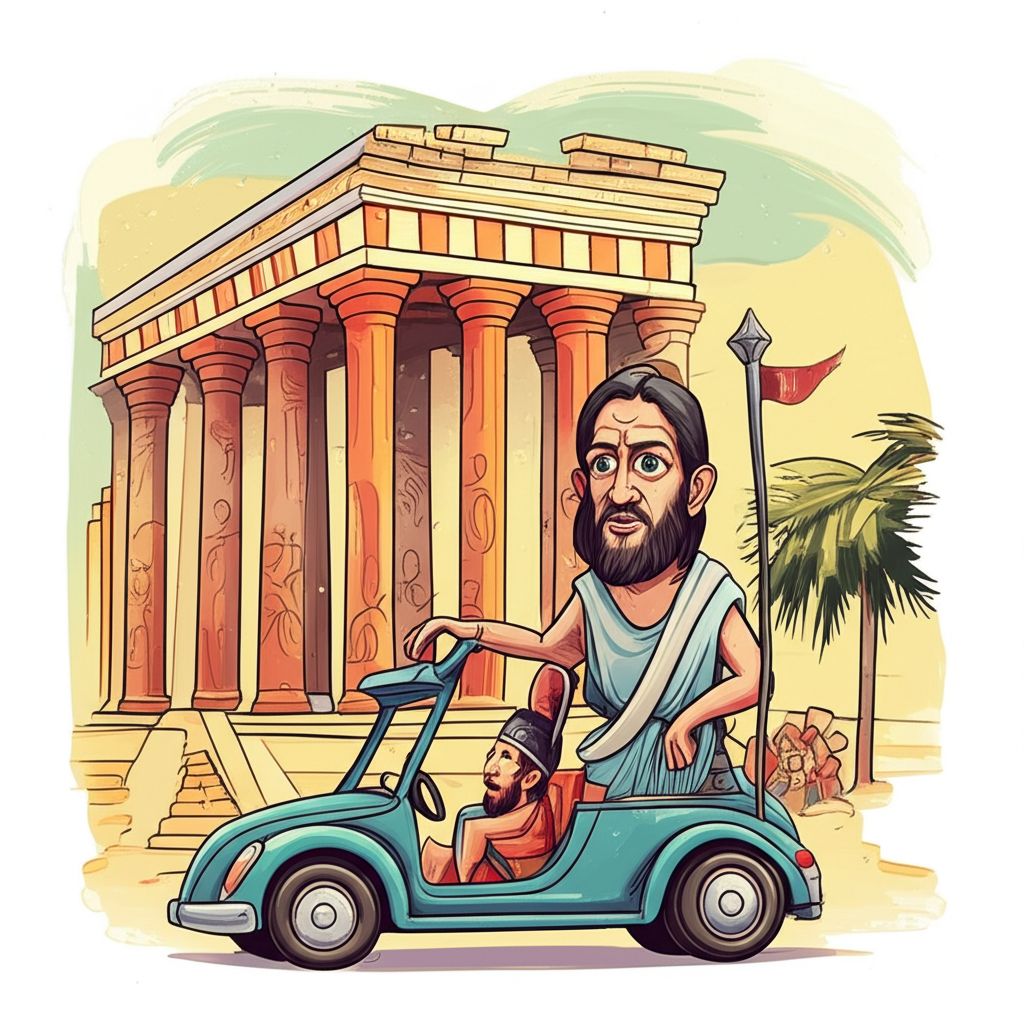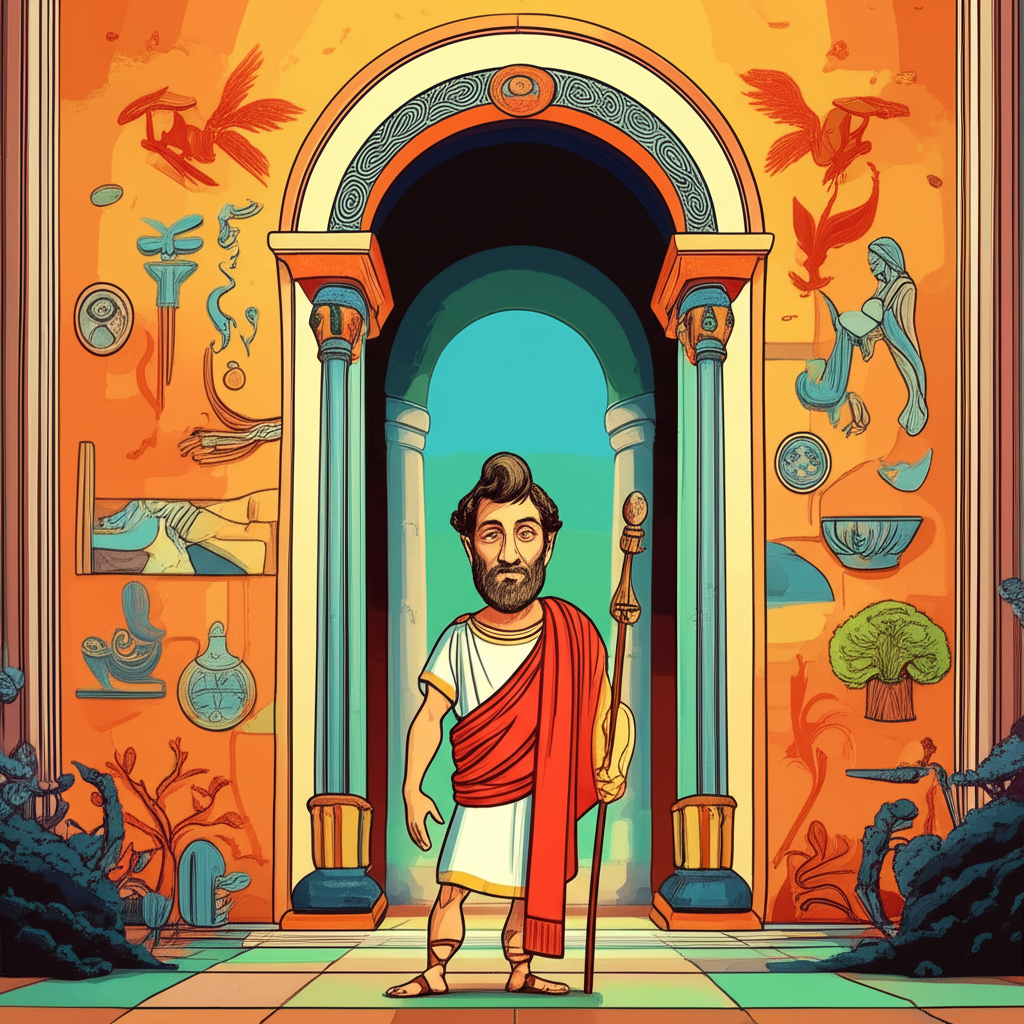From the sun-drenched shores of ancient Greece, a tapestry of myths and legends emerged, woven from the fears, hopes, and observations of a people deeply connected to the natural world and the mysteries that lay beyond it. Among these timeless tales, none resonate with the raw power and enduring spirit quite like the labors of Heracles. These weren’t divine pronouncements, but rather captivating narratives, shared around hearths and in public forums, offering explanations for the inexplicable and celebrating the extraordinary feats of a legendary hero. One of the most profound of these narratives delves into the chilling depths of the Underworld, and its aftermath, a story that continues to spark the imagination and offer glimpses into the ancient Greek worldview.
The era in which these stories took root was one of burgeoning city-states, where the pantheon of Olympian gods held sway, and the mortal realm was seen as a precarious existence shadowed by fate and the whims of higher powers. The ancient Greeks viewed the world as a place of both beauty and danger, where the forces of nature – storms, earthquakes, the changing seasons – were often personified and attributed to divine intervention. The concept of death, and what lay beyond it, was a particularly potent source of both dread and speculation. The Underworld, a shadowy realm ruled by the grim god Hades, was not a place of reward or punishment in the modern sense, but rather a somber destination for all souls, a muted existence devoid of joy or suffering. It was a place that held immense symbolic weight, representing the ultimate unknown, the end of earthly life.
At the heart of this particular legend stands Heracles, a figure of immense strength and unparalleled courage. He was the son of Zeus, the king of the gods, and a mortal woman, Alcmene. This divine parentage imbued him with extraordinary might, but also made him a target of Hera, Zeus’s jealous wife, who relentlessly pursued him with adversity. Heracles himself was not depicted as a flawless deity, but rather a mortal burdened by divine favor and the wrath of goddesses. His strength was his most defining characteristic, a physical manifestation of untamed power, often depicted with a lion’s skin draped over his shoulders, symbolizing his victory over the Nemean Lion, and a formidable club, a tool of both destruction and defense. His symbolic attributes were those of brute force, resilience, and a willingness to confront the most terrifying of challenges. He embodied the ideal of the heroic individual striving against insurmountable odds.
The twelfth and final labor assigned to Heracles by the capricious King Eurystheus was perhaps the most daunting: to descend into the Underworld and capture Cerberus, the monstrous three-headed dog that guarded the gates of Hades. This was not a task for the faint of heart, a journey into a realm where sunlight never penetrated and the air was thick with the lamentations of the departed. Heracles, armed with nothing but his legendary strength and a grim determination, embarked on this perilous descent. He navigated the treacherous Styx, the river of woe, ferried by the reluctant Charon. He faced spectral apparitions and the chilling silence that pervaded the kingdom of the dead.
Upon reaching Hades’ formidable citadel, Heracles confronted the god of the Underworld himself. Hades, though a stern and formidable ruler, recognized the inherent power of Heracles and, perhaps with a grudging respect for the mortal’s audacity, agreed to allow him to take Cerberus, provided Heracles could subdue the beast without the use of weapons. This was the ultimate test of his strength. Heracles grappled with the monstrous hound, its multiple heads snapping and snarling, its breath a noxious vapor. The struggle was epic, a clash of primal forces in the heart of the abyss. Through sheer, unyielding power, Heracles managed to overpower Cerberus, his mighty arms crushing the beast into submission. He then, with the subdued dog on a chain, ascended back into the world of the living, a triumphant, albeit grim, figure emerging from the eternal darkness.
The aftermath of Heracles’ descent into Hades was not merely a return to the sunlit world, but a profound psychological and symbolic shift. Having stared into the face of death and returned, Heracles carried with him the chilling echoes of the Underworld. His victory over Cerberus was not just a physical conquest; it represented a triumph over the fear of death itself, a testament to the enduring power of the mortal spirit even in the face of oblivion. The symbolic meaning of this labor was multifaceted. For the ancient Greeks, it spoke to the universal human fear of mortality and the unknown that lay beyond. Heracles’ journey offered a narrative of confronting and overcoming this primal dread, suggesting that even the most terrifying aspects of existence could be faced and, in some way, mastered. It was a story of courage in the face of ultimate helplessness, a reminder that even in the deepest darkness, the light of human resilience could prevail. Furthermore, the act of bringing a creature from the Underworld into the mortal realm highlighted the porous boundary between these two worlds, a concept that permeated much of Greek mythology.
Today, the tale of Heracles and his labors, including his harrowing journey to the Underworld, continues to captivate audiences. These ancient narratives have been reinterpreted and reimagined across various mediums. In literature, Heracles remains a recurring figure, a symbol of heroism and the exploration of human limits. Modern films and television shows often draw inspiration from his exploits, presenting him as a formidable warrior battling mythical beasts and confronting supernatural forces. Video games frequently feature Heracles as a playable character or a formidable boss, allowing players to engage with his legendary strength and iconic weapons. Beyond entertainment, scholars of classical studies and mythology analyze these stories for their insights into ancient Greek society, their understanding of the cosmos, and their moral and ethical frameworks. The symbolic resonance of his labors, particularly the descent into Hades, continues to be explored, offering a lens through which to examine themes of life, death, and the human condition.
In conclusion, the story of Heracles’ labors, particularly his descent into the Underworld and the subsequent emergence of Cerberus into the mortal realm, is a powerful testament to the enduring legacy of ancient Greek storytelling. It is a narrative born from a specific cultural context, reflecting the worldview and anxieties of its time. As Muslims, we recognize that only Allah is the true Creator and Sustainer of all existence, and that such narratives, while rich in cultural and historical significance, are products of human imagination and tradition. The enduring appeal of these myths lies not in their literal truth, but in their ability to stir our imagination, to explore profound human experiences, and to connect us to the vast and varied tapestry of human cultural heritage, reminding us of the power of stories to shape our understanding of the world and ourselves.




